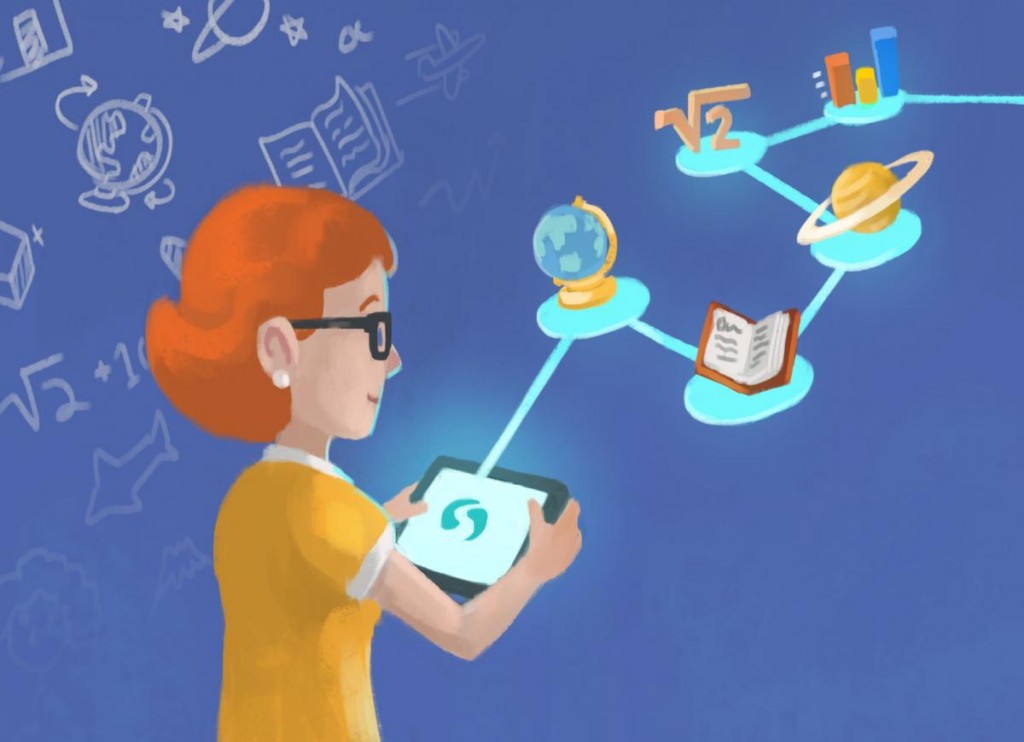
Muzzy Lane Author hopes to give teachers the tool they need to embrace game-based learning.
For game developers, it might sound like a pipe dream – a tool that would let teachers quickly and easily import their own content into a game, custom-built for their own classroom and assessment needs. It’s what teachers have been asking for and what many tech companies hope could be the elusive key to integrating game-based learning into the educational mainstream.
Game developer Muzzy Lane thinks their new tool may make the dream a reality. The Massachusetts-based software company recently announced the release of Muzzy Lane Author, a cloud-based authoring service that provides user friendly, mobile-first tools for educators and content specialists who want to take advantage of game-based learning, without spending time and money on custom design and development.
“There’s this wave coming, of exciting new activities and assessments that will incorporate game mechanics, and allow them to move much more readily into the mainstream,” said Muzzy Lane CEO Conall Ryan. “It’s worth looking for ways to unleash other people’s creativity, not convince them of our own.”
To this end, Muzzy Lane Author initially includes five different learning templates to help unlock that instructional creativity: Smart Chat, Insights, Vote, Align, and Slide Show.. Each template provides a set of activities and criteria to allow for meaningful learning, from math to history to English language arts. In addition to letting individual instructors harness the power of game-based learning, Ryan anticipates that these tools and templates will also inspire a secondary marketplace of activities created by talented instructors, similar to the “teachers pay teachers” lesson plan trade.
Some educational leaders like Chris Dede, professor at at the Harvard Graduate School of Education, called the new system “a breakthrough for game-based learning in combining powerful design features with ease-of-use. Expanding the number of people who can build educational games will both increase students’ learning and advance research on game design.”
Templates for interactive learning games aren’t a new concept. But the traditional grab-and-go game shell – perfectly suited for rote learning and memorization – isn’t enough for teachers seeking to marry meaningful learning and assessment with game-based instruction.
“Again and again, I’ve heard instructors of entry-level courses say ‘I’m hard pressed and dying to assess critical thinking for my students, but I don’t have the tools and the time to do it manually,’” Ryan said.
That’s why Muzzy Lane Author includes auto-assessment tools built to gauge informational recall as well as critical thinking and meaningful connections within and between content areas. Muzzy Lane Author has quantified critical thinking, for example, in a way that not only measures outcomes but allows for formative analysis of class learning as it occurs. According to Ryan, these assessment tools are trying to find the balance between too much data and not enough, allowing educators to measure the learning that really counts without inundating them with extra data. Muzzy Lane’s development team will also monitor user access and assessment data, and use that information to refine their services and develop new template designs.
Much like GlassLab Games, Muzzy Lane is still seeking the data “sweet spot” for accessible assessment data.
“The North Star of that effort – which we are still on the journey of developing – is [knowing] what data will show that the game is working, that it’s leading to better outcomes, that it’s providing deeper learning and better insights into the learning,” Ryan said, adding that his firm’s experience working with McGraw Hill’s Practice series has helped them to fine-tune their interactions with instructors and quickly identify which data best serve access to key performance indicators.
Ryan noted that every activity designed with Muzzy Lane Author generates a link that can be seamlessly integrated with any learning management system, from Blackboard to Moodle. Depending on the LMS, Ryan said, assessment integration may be a little extra effort, but for the most part the system is well prepared for the full gamut of online learning needs.
In addition to providing a link between instructors and the game world, Muzzy Lane Author also has the potential to operate as a tool for students to create their own games in a project-based learning environment.
Although Muzzy Lane currently partners with only higher-education institutions (due in part to a Bill and Melinda Gates Foundation grant to connect nontraditional students with game-based learning), Ryan said the company is very interested in moving into the K-12 market – but not until they can guarantee to meet the needs of every partner with adequate service and training. Until then, Muzzy Lane will be visiting schools to demonstrate the new service and authoring platform, as well as offering a beta release to limited number of current and prospective partners. According to Ryan, dozens of partners are already taking advantage of the Muzzy Lane Author beta platform.
“I have a feeling we’re going to go a bit slowly, so we don’t disappoint anyone,” Ryan said. “But the whole idea of these things is they have the potential to be ubiquitous.”
